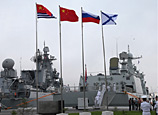
Japan's newly released defense white paper sharply increased its provocative and vigilant tone toward China. It accused China of resorting to "high-handed" tactics, and Japanese Defense Minister Itsunori Onodera detailed China's actions in areas including the East China Sea as an example of its "assertive" approach.
"It is not necessarily possible to prevent invasions from outside by nonmilitary means such as diplomatic efforts," the paper said, noting enhancing defensive capabilities are a reflection of national determination to defend against foreign invasion.
The white paper gave people the impression that Japan doesn't care about China's reaction. Some Japanese high-level official put it bluntly that Japan takes China's reaction lightly. Such contempt has become quite common in Japan's official remarks.
Japan hopes to maintain its relations with China on two premises: restraining China through the US-Japan alliance and keeping the Diaoyu Islands under its control. This white paper has thoroughly demonstrated its arrogance.
Estrangement and confrontation between China and Japan have deepened. The conflicts are moving from historical and island disputes, which are supposed to be controllable, to strategic hostility. Japan doesn't mind the dangerous trend, as seen in its release of the white paper.
It is creating momentum to overwhelm China despite an absolute decline in its national strength. It thinks that as long as it acts tough, Beijing will have no other choice but to surrender to Japan for the sake of securing its global strategy.
Japan also has a fascination with the US-Japan alliance. It believes that the tenser bilateral relations are, the more powerful the US-Japan alliance to deal with China will be.
Tokyo in fact has lost its strategic vision. It appears to take the leading role in confronting China among neighboring countries, in essence making itself a pawn of the US.
China has two alternatives. The first is to take decisive actions against Japan in the fields of economy, politics and military and so on, which will end with Japan's failure as long as China has resolution.
The second is to take Japan less seriously and avoid unnecessary entanglement with Japan.
Japanese officials take turns to show their toughness on China, and they use the white paper to provoke us. Japan concentrates its attention on competing with China, but Japanese issues don't mean so much to China.
Keeping calm in front of Japanese provocations, China could continue to learn from Japan's management experiences, advanced electronic and automotive technologies.
The hysteria of some Japanese politicians is a result of their country's anxiety and fear.
















 Severe rainstorms batter SW China quake-hit regions | Pedestrians fall into river after bridge collapses
Severe rainstorms batter SW China quake-hit regions | Pedestrians fall into river after bridge collapses


![]()
